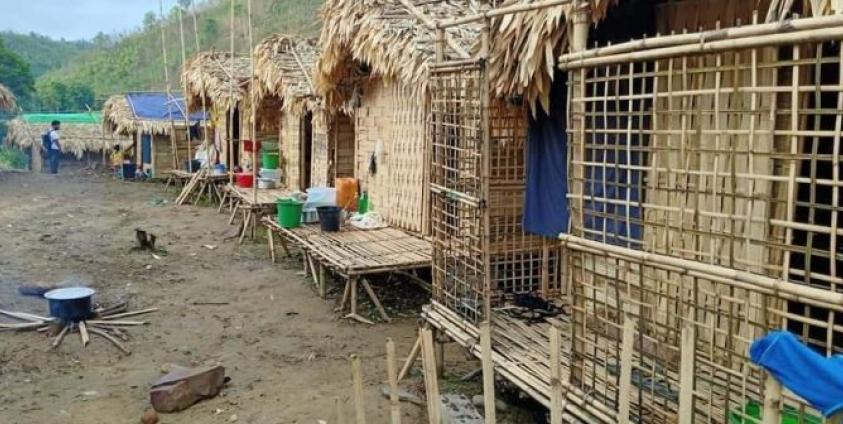The government of Chin State was criticized for not doing enough to help civilians displaced by the conflict between Arakan Army (AA) and Tatmadaw in southern Chin State.
Mai Nan Wai, the spokesperson for Relief and Rehabilitation Committee for Chin IDPs (RRCCI), said if the government did its job the internally displaced persons (IDPs) in Paletwa wouldn’t need their help or from any of the other volunteer groups operating in the area. “Although the Chin State government hasn’t completely ignored IDPs in Paletwa, they need to pay more attention to their needs, and it’s something we’ve already brought with them.”
Since fighting started in 2015, almost 10,000 local people have been displaced by the violence that has blocked essential land and water routes to Paletwa town, preventing food and other rations from reaching residents for most of the last year.
Salai Sang Hnin Lian, from Chin Human Rights Organization (CHRO), said the government needs to be more transparent about funds it receives from organizations and private donors for helping IDPs. With a population of 100,000, Paletwa Township is the most populous in the state, therefore it makes sense for the government to allocate a separate budget for IDPs and residents affected by the conflict, he said. In addition, a committee should be formed, along with the civil society organizations, to manage the IDPs’ needs.
Soe Htet, spokesperson for Chin State government, said the government paid a lot of attention to the IDPs and Paletwa residents at the beginning. But after the pandemic started, and many people across the state needed to be quarantined, it’s resources have been stretched. Soe Htet pointed out that the Union government still gives IDPs rice, cooking oil, salt and beans every three months. Now that it’s the dry season now and fighting stopped for the last three months, supplies are being trucked to Paletwa by Sami town.
Despite this a bag of rice, which sells for 60,000 kyat ($45) in Paletwa, is still prohibitively expensive for residents. Regional instability and extra costs associated with transporting goods on the poorly maintained highway to the beleaguered township have driven prices up.







